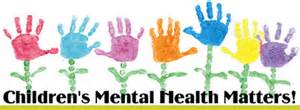Children’s Mental Health: What are the Signs that your Child Needs Help?
Did you know that 1 in 5 Ontario children under 19 years of age experience a mental health issue that is severe enough to disrupt their daily functioning? Although this statistic can seem very alarming, the good news is that early intervention can lead to a better life for these children. But early intervention can only occur if parents seek help at this stage of life. Unfortunately, there is a negative stigma attached to mental health issues, and consequently, many parents ignore or refuse to acknowledge the existence of a mental health disorder. It’s now time to get rid of negative stereotypes surrounding mental health and help these kids thrive. If mental health issues can be diagnosed early – even as early as infancy – the future prospects for that child will be improved given that scientific evidence proves that the majority of brain development occurs between 0-6 years old.
Some of the more common mental health disorders affecting children and youth are Anxiety, Attention Deficit/Hyperactivity Disorder, Autism Spectrum Disorder, Behaviour Disorders, Mood Disorders, Eating Disorders, Schizophrenia, Substance Abuse and Tourette Syndrome.
Recognizing the symptoms of a mental health issue is the key to early intervention. It may be difficult to know when you should seek help for your child. How do you recognize the symptoms of a mental health issue? Here’s a list of characteristics and behaviours that may be signs of an underlying mental health disorder:
- getting significantly lower marks in school
- avoiding friends and family
- having frequent outbursts of anger and rage
- losing his or her appetite
- having difficulty sleeping
- rebelling against authority
- drinking a lot and/or using drugs
- not doing the things he or she used to enjoy
- worrying constantly
- experiencing frequent mood swings
- not concerned with his or her appearance
- obsessed with his or her weight
- lacking energy or motivation
- hitting or bullying other children
- attempting to injure him or her self
Children and youth with the most serious mental health disorders (e.g., severe psychosis or schizophrenia) may exhibit:
- distorted thinking
- excessive anxiety
- odd body movements
- abnormal mood swings
- acting overly suspicious of others
- seeing or hearing things that others don’t see or hear
If you are concerned about your child’s mental health, contact your doctor and check out these resources for support.
Children`s Mental Health Ontario
Sick Kids Hospital
The ABCs of Mental Health
www.hincksdellcrest.org/ABC
Learning Disabilities Association of Ontario
National Centre for Learning Disabilities
Reaching In Reaching Out
www.reachinginreachingout.com/resources-parents.htm
Peel Behavioural Services
www.peelbehaviouralservices.ca
Peel Children’s Centre

